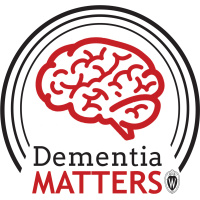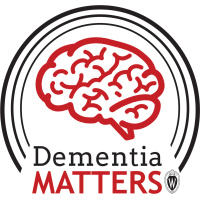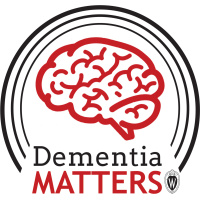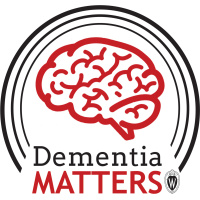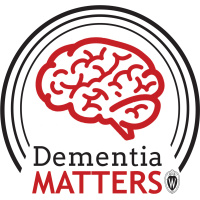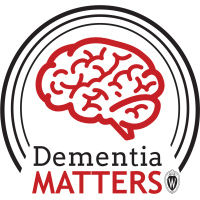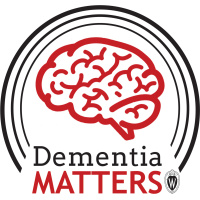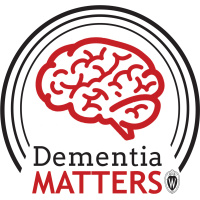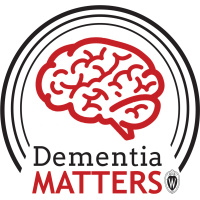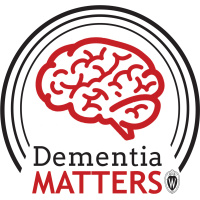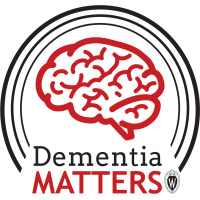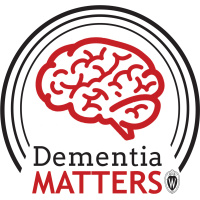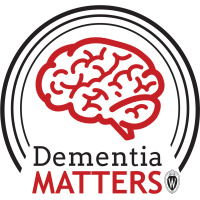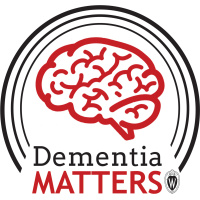Synopsis
Dementia Matters is brought to you by the Wisconsin Alzheimers Disease Research Center, located in Madison, Wisconsin. Our podcast is here to help humanize Alzheimers disease, by speaking with the experts in our community to keep you informed on the latest headlines, research studies, and caregiver resources.
Episodes
-
DNA Is Not Your Destiny: Genetics and Alzheimer’s Disease Risk
18/02/2020 Duration: 16minThis episode explores genetic risk factors for early- and late-onset Alzheimer’s disease. Host Nathaniel Chin and guest Corinne Engelman discuss the research looking into genetic risk for Alzheimer’s disease and the uncertainty that comes with genetic testing. Guest: Corinne Engelman, MSHP, PhD, associate professor, Department of Population Health Sciences, University of Wisconsin School of Medicine and Public Health Episode Topics: What are the genetic influences on a person’s risk for Alzheimer’s disease? 2:07 What genes affect individuals with early-onset dementia? 2:56 What is the impact of genes that counter one another? 5:34 How much can our lifestyle choices affect our genetic risk? 7:52 How is the genetic testing being analyzed? 9:03 What can at-home genetic testing tell us about Alzheimer’s disease? 10:06 How essential is the role of genetic counselor? 11:47 Have we found any genetic risks related to the aging process? 13:21 What advice do you have for people interested in maximizing their genetic o
-
Exercise Your Mind: Cognitively Stimulating Activities and Social Engagement
04/02/2020 Duration: 21minOur guest, Dr. Kimberly Mueller, joins us to discuss cognitively stimulating activities and the impact of social engagement on brain health. Guest: Kimberly Mueller, PhD, CCC-SLP, Assistant Professor, Department of Communications Sciences and Disorders, University of Wisconsin-Madison Episode Topics: What are cognitively stimulating activities? 1:25 Recent studies: 2:50 Are some activities better than others? 9:00 Are Jeopardy or other “active” television shows considered cognitively stimulating? 10:23 Are board games, crossword puzzles, and brain games considered cognitively stimulating activities? 11:22 Is there evidence showing the benefits of social engagement? 15:08 Advice for maintaining and strengthening brain health: 18:37
-
Bonus Episode: Current Research into Frontotemporal Dementia
28/01/2020 Duration: 14minIn this bonus episode, we continue our conversation with Dr. Howie Rosen on Frontotemporal Dementia (FTD). On last week’s episode, Dr. Rosen spoke on the genetic risk factors, trajectories and family caregiving experiences of FTD. Now, our conversation turns to the research looking into how the disease affects self-awareness, biomarkers and early detection, as well as ways people can volunteer for a research study. Guest: Howard “Howie” Rosen, MD, behavioral neurologist at the University of California San Francisco Memory and Aging Center Episode Topics: FTD and self-awareness: 1:10 Research into biomarkers for Frontotemporal Dementia: 4:42 How can people help the research: 11:40
-
Understanding and Managing Frontotemporal Dementia
22/01/2020 Duration: 28minFrontotemporal dementia (FTD) is a type of dementia caused by degeneration in the temporal and frontal lobes of the brain. Our guest discusses the symptoms, risk factors, prevalence, and course of the disease, along with information on how a doctor diagnoses FTD and what families and caregivers can do after diagnosis. Guest: Howard “Howie” Rosen, MD, behavioral neurologist at the University of California San Francisco Memory and Aging Center Episode Topics: A definition of Frontotemporal Dementia (FTD) 1:02 How common is FTD? 3:53 Genetic risk factors of FTD: 4:30 Non-genetic risk factors of FTD: 6:40 Symptoms of FTD: 8:40 How a clinician diagnoses FTD: 14:03 What is the course of the disease? 16:20 What to do after a diagnosis: 18:51 Family and caregiver experience of FTD: 22:36 Community support and networking: 25:53
-
It Takes Two to Tango: The Importance of Amyloid and Tau in Cognitive Decline
07/01/2020 Duration: 25minOur guests, Dr. Rebecca Koscik and Dr. Tobey Betthauser, are researchers investigating the trajectory of amyloid and tau proteins over time and the significance of amyloid chronicity. Koscik and Betthauser discuss their two recent publications on the topic and how amyloid PET scans have helped scientists better understand the early brain changes associated with Alzheimer’s disease. Guests: Rebecca Koscik, PhD, senior scientist, Tobey Betthauser, PhD, postdoctoral fellow, University of Wisconsin-Madison In this episode, we discuss ... How amyloid PET tracers work 7:17 Published research on amyloid duration 12:01 Research supporting amyloid chronicity 18:14
-
What We Have Learned from the Wisconsin Registry for Alzheimer’s Prevention Study
10/12/2019 Duration: 22minOur guest is Dr. Sterling Johnson, associate director of the Wisconsin Alzheimer’s Disease Research Center and principal investigator of the Wisconsin Registry for Alzheimer's Prevention (WRAP) study at the University of Wisconsin-Madison. The WRAP study is one of the largest and longest-running observational studies of Alzheimer's disease in the world. Dr. Johnson shares study findings, discusses advancements in brain imaging, and introduces the concept of amyloid chronicity. Guest: Sterling Johnson, PhD, professor of medicine (geriatrics), University of Wisconsin School of Medicine and Public Health Show Notes: What is the WRAP study? 3:28 Findings from the study: 8:06 WRAP studies outside of Wisconsin: 10:59 What is amyloid chronicity? 15:19
-
Considerations for Caregivers in Indian Country
26/11/2019 Duration: 16minDr. J. Neil Henderson is an expert on diabetes and dementia, as well as creating culturally specific caregiver training programs for people who care for American Indian elders. Dr. Henderson, who is Oklahoma Choctaw, discusses cultural influences on caregiving and his work in improving brain health among American Indians and rural populations. Guest: J. Neil Henderson, PhD, professor, University of Minnesota School of Medicine, Duluth campus; executive director, Memory Keepers Medical Discovery Team on Health Disparities Show Notes: Trainable caregiving skills: 1:07 Impact of culture on caregiving: 6:29 American Indian and rural health disparities in memory: 10:35
-
Early-onset Alzheimer’s Disease: What to Know and What to Expect
14/11/2019 Duration: 24minPeople diagnosed with Alzheimer’s disease before the age of 65 are said to have early-onset Alzheimer’s disease. While this diagnosis is rare, the condition is very serious for the patient and their loved ones. Our guest helps define the disease and its symptoms, walks listeners through a diagnosis, and points to unique considerations for patients and their caregivers. Guest: Susanne Seeger, MD, associate professor (clinical) of neurology, University of Wisconsin School of Medicine and Public Health Key Moments: Defining early-onset Alzheimer’s disease and its symptoms: 0:58 Differentiating vascular and frontotemporal dementia from early-onset Alzheimer’s disease: 7:19 Most common memory and thinking complaints: 9:27 Diagnosing early-onset Alzheimer’s disease: 11:15 Issues people face after an early-onset Alzheimer’s disease diagnosis: 12:50 Where to go for help after a diagnosis: 14:35 Genetic considerations for patients and family members: 19:36
-
Palliative Care and Hospice Conversations for Dementia Patients, Families and Caregivers
22/10/2019 Duration: 18minA common concern for families and dementia caregivers is when to start talking about palliative care and hospice with and for their loved ones with dementia. Our guest, Dr. Kate Schueller, recommends these conversations happen soon after a diagnosis, when the dementia patient can still be involved in planning their care. This episode talks about the difference between palliative care and hospice, the right time to initiative services, and other considerations for patients, families, and caregivers. Guest: Dr. Kate Schueller, MD, assistant professor of medicine, Division of Hematology, Medical Oncology and Palliative Care, University of Wisconsin School of Medicine and Public Health Key Moments: The difference between palliative care and hospice: 0:50 How palliative care helps dementia: 4:49 Further steps for families: 10:17 What palliative care and hospice offer for grief: 16:07
-
Building the Brain: Finding the Cognitive Benefits of Physical Activity
08/10/2019 Duration: 19minTo many people, exercise can seem like an uncertain and intimidating new world. The confusing marketing around it can make it hard to find a healthy, sustainable exercise plan. But it's important for people to fit movement into their lives because a growing body of research is showing the positive effects that physical activity can have on your brain. Our guests Sarah Lose and Max Gaitan, research specialists and exercise physiologists, discuss building cognitive resilience, defining physical activity, and researching exercise and its links with brain health. Guests: Sarah Lose, Max Gaitan, Research Specialists and Exercise Physiologists, Okonkwo Lab, Alzheimer’s Disease Research Center, University of Wisconsin-Madison “Overall, what our lab has found, is that physical activity and fitness can diminish or dampen both the effects of age and a genetic risk, or predisposition, to developing Alzheimer's disease." - Sarah Lose (9:57) Key Moments: Clarifying the terms in exercise research: 1:21 Defining and underst
-
When Good Becomes Bad: Researching the Impact of Neuroinflammation
24/09/2019 Duration: 18minInflammation is a common response throughout the body that fights injury and infection and works to rebuild cells after damage. Inflammation works the same way in the brain, but sometimes the inflammatory response meets damage it can’t manage and becomes dysregulated. Our guest Dr. Linda Van Eldik discusses her research into the connections between neuroinflammation and neurodegenerative diseases like dementia, and how this research can help inform the medical community about drug-based treatments for Alzheimer’s disease. Guest: Dr. Linda Van Eldik, Director, Sanders-Brown Center on Aging
-
The Power of Disclosure: How Explaining Risk of Alzheimer's Disease Impacts Life Afterward
11/09/2019 Duration: 19minIn the advancing field of dementia research, the rise in genetic and biomarker testing for Alzheimer’s disease creates a need for conversations around how to disclose disease risk to research participants who may be years away from experiencing the symptoms of the disease. Guest Dr. Shana Stites discusses her research that examines public perception of the disease, associated stigma and discrimination, and how the research and medical communities can support people who learn about their Alzheimer’s disease risk profile. Guest: Shana D. Stites, PsyD, MS, Penn Memory Center, University of Pennsylvania Health System
-
Simple Steps to Reduce Fall Risk among Older Adults
27/08/2019 Duration: 16minFalls are the leading injury related cause of emergency room visits, and people with dementia experience falls at about twice the rate of other older adults. But falls are not an inevitable part of aging, and balance and strength training have been proven to reduce fall risk. Our guest joins us to talk about fall risk in older adults and steps patients and caregivers can take to help reduce falls. Guest: Barbara Fischer, PhD, neuropsychologist at the Milo C. Huempfner VA Heath Care Clinic
-
The Evolving Definition of Alzheimer’s Disease
13/08/2019 Duration: 20minAlzheimer’s disease researchers are developing new techniques for identifying the disease much earlier than was possible in the past. This requires patients, families, and the medical community to talk about Alzheimer’s disease and dementia in different ways. Our guest Dr. Jason Karlawish joins us to discuss the evolving definitions of Alzheimer’s disease and dementia, as well as the ethical and social issues people with dementia face. Guest: Dr. Jason Karlawish, Penn Memory Center, Professor of Medicine, Medical Ethics and Health Policy, and Neurology at the University of Pennsylvania
-
Telemedicine Reduces Emergency Room Visits for Dementia Patients
30/07/2019 Duration: 18minA visit to the Emergency Department can be stressful and disorienting for a person with dementia, and oftentimes unnecessary. Dr. Manish Shah discusses his research into programs that reduce Emergency Room visits for dementia patients. Guest: Dr. Manish Shah, professor at UW School of Medicine and Public Health and Co-Leader of the Care Research Core at the Wisconsin Alzheimer's Disease Research Center
-
Safety Tips for the Aging Driver
16/07/2019 Duration: 19minDr. Chin talks with our guest about safety tips for aging drivers, caregiver considerations, and information on classes offered through AARP's Driver Safety Program. Guest: Neil McCallum, Wisconsin State Coordinator of AARP’s Driver Safety Program
-
A Guide to Developing Mind-Body Skills for Improved Brain Health and Wellness
02/07/2019 Duration: 22minLearn how to increase positivity, nurture mindfullness, and combat loneliness to improve overall health and wellness. Guest: Dr. Shilagh A. Mirgain, PhD, Distinguished Psychologist with the University of Wisconsin Department of Orthopedics and Rehabilitation/UW Health
-
Bank Supports Aging Customers with Dementia Friendly Training for Its Employees
18/06/2019 Duration: 18minMissteps with money management is an early warning sign of dementia, and aging customers are often targets of financial scams and abuse. This week's guest spearheaded dementia friendly training across all branches of the bank she works for in hopes of supporting and protecting aging customers. In this podcast episode, learn about River Valley Bank's Dementia Friendly program, the type of training employees completed, and how bank customers and communities reacted to the initiative. Guest: Rhonda Lewis, River Valley Bank
-
Medication Management Tips for Seniors
04/06/2019 Duration: 20minOur guest discusses a wide range of pharmacological topics of interest to the aging adult and caregivers, from medication reconciliation to sleep aids to addressing how some drugs affect memory and thinking skills. Guest: Robert Breslow, pharmacist, associate professor at the University of Wisconsin School of Pharmacy
-
Dementia Caregiver Turns Advocate for People with Alzheimer’s Disease
23/05/2019 Duration: 20minFormer Badger Men’s Hockey announcer and “The Golf Affect Radio Show” host Paul Braun was a caregiver for his late wife, Karen, who had early-onset Alzheimer’s disease. Paul’s experiences motivated him to become an advocate for people with Alzheimer’s disease and raise awareness and money for research and caregiver support. Paul was instrumental in developing the American Family Insurance Championship golf tournament Birdies for Health campaign, which raises money for five health causes at UW Health. Guest: Paul Braun, radio and sports broadcasting personality

